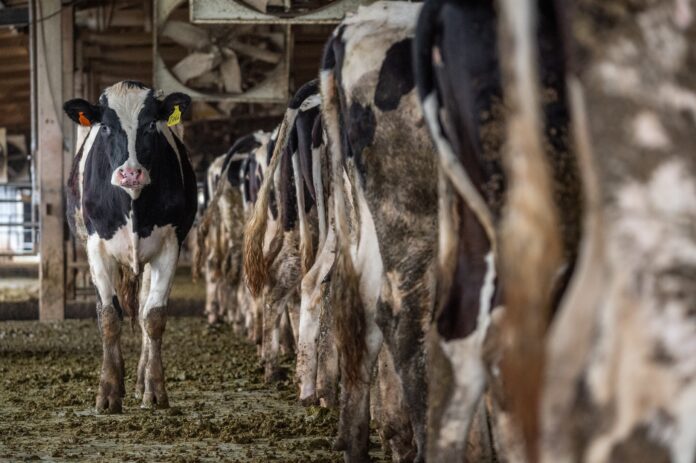As the world turns its eyes to COP28, the vital international environmental conference set to address the escalating climate crisis, a controversial presence looms large: powerful meat corporations. These industry giants plan to infiltrate the summit, armed with a pro-meat agenda that directly contradicts hard-hitting climate research.
Despite overwhelming evidence that 57% of greenhouse gas emissions in food production stem from meat, dairy, and related sectors, these meat lobbyists audaciously push the narrative of meat as “sustainable nutrition.” Delcianna J. Winders, Director at the Animal Law and Policy Institute of Vermont Law and Graduate School, likens the meat industry’s brazen tactics to those of the tobacco industry, notorious for its relentless pursuit of profit at the expense of public health.
The Intergovernmental Panel on Climate Change (IPCC) has made it crystal clear: to avert a catastrophic planetary collapse, humanity needs a rapid transition to a plant-based food system. This fact sends shivers down the spine of the meat industry, which, according to Nusa Urbancic of the Changing Markets Foundation, employs multiple tactics to delay the inevitable reduction in meat and dairy product volume.
In a move signaling acknowledgment of the urgent need to address agricultural emissions, COP28 has adopted a predominantly plant-based menu. This shift, a stark contrast to previous meat-heavy offerings, aligns with findings from the Livestock, Environment, and People (LEAP) project that plant-based diets could cut greenhouse gas emissions and water pollution by a staggering 75% compared to diets high in meat consumption.
Furthermore, the UN Food and Agriculture Organization (UN FAO) is set to release a comprehensive roadmap during COP28, outlining the necessity of reducing meat consumption to align the global agrifood industry with the Paris climate agreement. This potentially game-changing plan could accelerate policy and investment decisions to diminish meat production, a crucial step in mitigating the climate crisis.
However, the industry is not taking this lying down. Documents obtained by The Guardian reveal that major meat companies like JBS, along with other big players such as the Global Dairy Platform and the North American Meat Institute, are gearing up for a strong presence at the summit. According to Jennifer Jacquet, a professor at the University of Miami, these companies are ramping up their efforts in response to increasing scrutiny and exposure.
At the heart of their strategy is the Global Meat Alliance (GMA), a trade group instructing members to adhere to key communication tactics, which disturbingly include promoting the false notion that meat production is environmentally beneficial. Accompanying them is the North American Meat Institute (NAMI), a lobby group that as recently as 2022 expressed doubts on its website about the human-caused nature of climate change.
The presence and tactics of these meat industry giants at COP28 not only represent a blatant disregard for scientific consensus but also pose a significant threat to the integrity of discussions aimed at addressing the climate crisis. Decision-makers must prioritize the planet and its inhabitants over the interests of a few profit-driven corporations. The battle for the truth about the environmental impact of meat production is not just about diets; it’s a crucial front in the larger fight against climate change.



